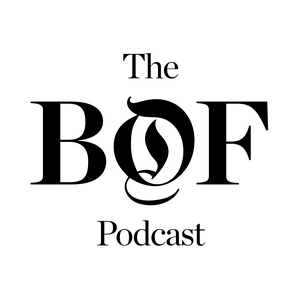Coldplay’s Guy Berryman Says He Makes Clothes the Way He Makes Music
Guy Berryman grew up with an engineer's mind and a passion for making things. After studying mechanical engineering and architecture, he found global fame as the bassist of Coldplay. But his love for making things never went away. In 2020, he launched Applied Art Forms, a clothing label that draws inspiration from utilitarian design, military garments and mid-century modern aesthetics.Now stocked in over 50 stores worldwide, including Dover Street Market, the brand is growing slowly but deliberately, with a creative process that he likens to making music. “The way I make things is very much like [how] we make songs, which is you throw ideas down and then you listen to it, judge it and see what it is. It’s a very sculptural process, says Berryman. “I'm not just backing someone else's brand. This is absolutely hands on, this is my baby.”This week on the BoF Podcast, Berryman joins BoF founder and CEO Imran Amed to discuss the steep learning curve of building a fashion business, why quality and longevity matter more than hype, and how his creativity flows across creative disciplines. Key Insights: Berryman describes himself as having "an engineer's brain," shaped by his background studying mechanical engineering and architecture. This maker's mentality underpins his meticulous, hands-on approach at Applied Art Forms – from crafting prototypes to obsessing over garment details. "I'm on the studio floor, my hands and knees cutting, sewing, gluing, stitching," he says. "This is absolutely hands on."Berryman designs garments with longevity in mind. "I always feel like clothes actually get better the more you wear them," he says. "I feel that way towards everything that we're doing and I like the idea that everything that people buy from us is going to be with them for a long period of time."Despite his passion for clothing, Berryman admits he entered the fashion industry naively. He quickly learned that building a brand from scratch requires humility and perseverance. "Nothing can prepare you for the reality of making and selling clothes. It's an incredibly brutal industry to be in," he says. "What I've come to realise is you can only survive in it if you're completely passionate about the process.”Working in fashion hasn’t taken away from his role in Coldplay, but rather enhanced it. "Having a creative outlet elsewhere has allowed me not to feel like I have to impose myself creatively into the band," Berryman says. He approaches clothing the same way he makes music: "You listen to it, judge it and see what it is. It’s a very sculptural process."Additional Resources:Will Dover Street Market’s Big Bet on Independent Fashion Pay Off? | BoFThis episode includes a short clip from "Yellow," written by Chris Martin, Guy Berryman, Jonny Buckland, Will Champion, performed by Coldplay (© 2000, Parlophone Records). Hosted on Acast. See acast.com/privacy for more information.

